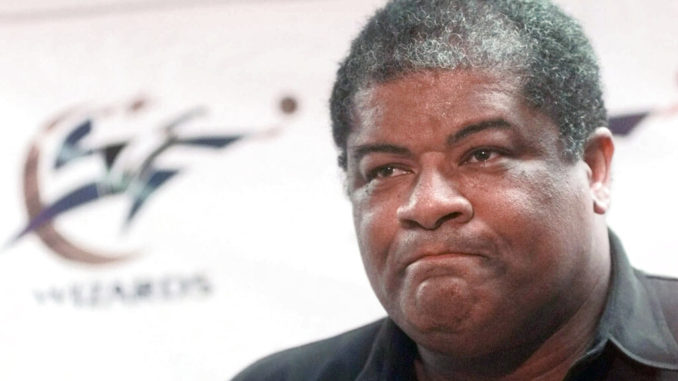
By Howard Fendrich— Wes Unseld, the workmanlike Hall of Fame center who led Washington to its only NBA championship and was chosen one of the 50 greatest players in league history, died Tuesday after a series of health issues, most recently pneumonia. He was 74.
Unseld’s family announced his death via a statement released by the Washington Wizards, the franchise he played for throughout his entire 13-season career.
A five-time All-Star and, along with Wilt Chamberlain, one of only two players to win NBA Rookie of the Year and MVP honors in the same season, Unseld instantly made the team then known as the Baltimore Bullets into a winning franchise after it selected him No. 2 overall in the 1968 draft.
A decade later, he was the MVP of the NBA Finals as the Washington Bullets beat the Seattle SuperSonics in a seven-game series best known for coach Dick Motta’s proclamation: “The opera ain’t over until the fat lady sings.”
Listed at 6-foot-7 and 245 pounds, Unseld overcame taller players and bad knees with a strong work ethic and lots of grunt work in the paint. He was a tenacious rebounder and strong passer.
Unseld was inducted into the Hall of Fame in 1988, his first year of eligibility.
“I never played pretty,” Unseld said on the day he was elected. “I wasn’t flashy. My contributions were in the things most people don’t notice. They weren’t in high scoring or dunking or behind-the-back passes.”
Wesley Sissel Unseld was born March 14, 1946, in Louisville, Kentucky, where he won two state championship at Seneca High School and then stayed home for college, attending the University of Louisville.
He averaged 20.6 points and 18.9 rebounds over his four years with the Cardinals, earning him the prime draft spot right behind No. 1 selection — and future Bullets teammate — Elvin Hayes.
In the NBA, Unseld averaged 10.8 points and 14 rebounds for his career.
His aching knees finally forced Unseld to stop playing in 1981, but he remained with the franchise that would eventually retire his No. 41 jersey.
Unseld initially worked in Washington’s front office, then was head coach for nearly seven seasons from 1987-94, compiling a 202-345 record with one playoff appearance. He also had a seven-year stint as general manager from 1996-03, when the team made one other trip to the playoffs.
Funeral arrangements were pending.
“He was the rock of our family — an extremely devoted patriarch who reveled in being with his wife, children, friends and teammates,” the family’s statement Tuesday said. “He was our hero and loved playing and working around the game of basketball for the cities of Baltimore and Washington D.C., cities he proudly wore on his chest for so many years.”

Be the first to comment